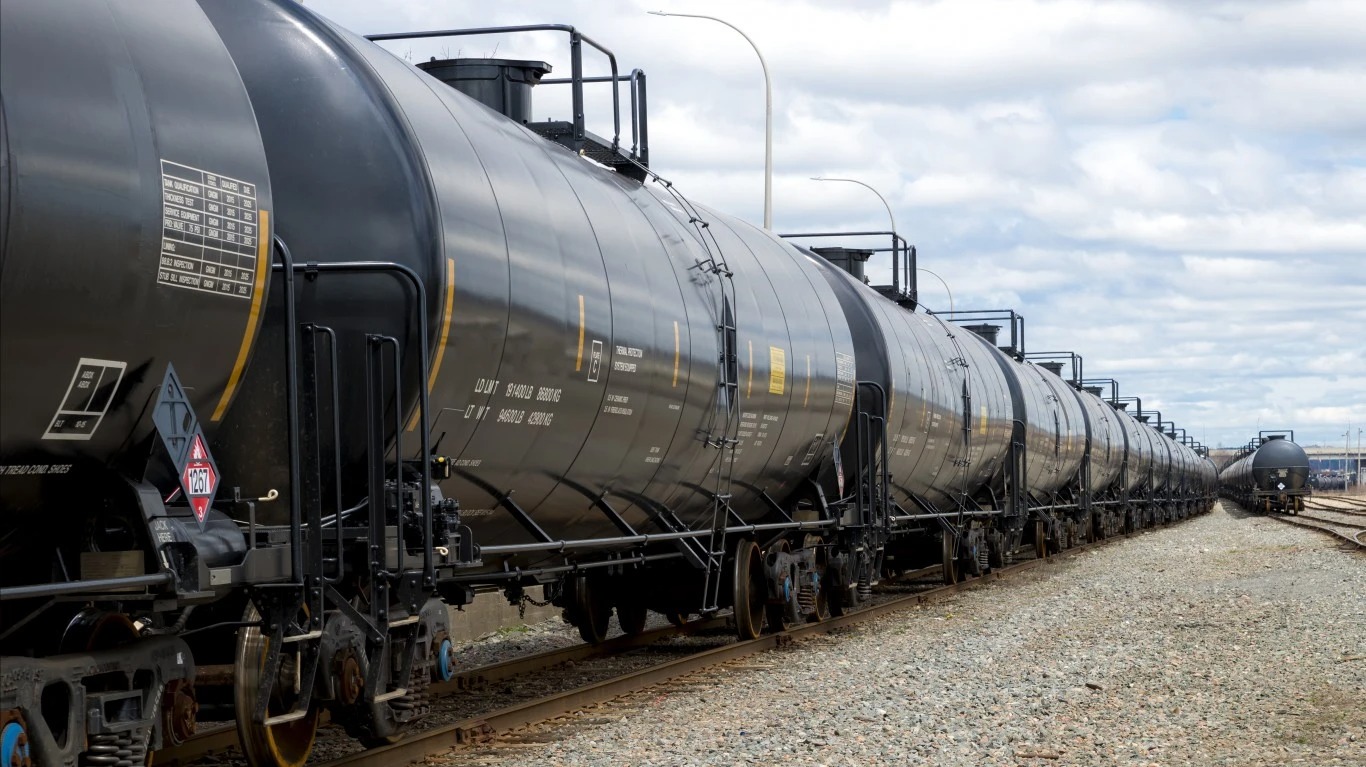
Premarket action on Wednesday had the three major U.S. indexes trading lower. The Dow Jones industrials were down 0.24%, the S&P 500 down 0.22% and the Nasdaq 0.13% lower.
Tuesday’s big story was the afternoon collapse of all three major indexes as it became clear that House Speaker Kevin McCarthy and President Joe Biden were getting nowhere in their negotiations to raise the federal debt limit. Stocks sank, bonds drifted downward and cryptocurrency took the biggest dip of all. Gold slipped by a fraction, and tech megacaps, the new safe haven, could not avoid the sell-off.
Tesla Inc. (NASDAQ: TSLA) fell by more than 1.6%, Microsoft Corp. (NASDAQ: MSFT) dropped more than 1.8% and Apple Inc. (NASDAQ: AAPL) closed down about 1.5%. Wednesday’s premarket session was on track to continue the decline. That leaves energy, and that is worth a look Wednesday morning as we wait for the weekly report on U.S. petroleum inventories.
Chevron Corp. (NYSE: CVX) added nearly 3% on Tuesday after the stock was upgraded to Buy with a price target of $189 by HSBC. The Dow component is unlikely to see big share price gains, but its announced $7.6 billion acquisition of PDC Energy adds assets in both the Denver-Julesburg and Permian Basins to Chevron’s holdings and, more important, PDC’s solid free cash flow (about $1 billion annualized) should mean more returns for shareholders. Chevron is paying no cash in the all-stock deal and is acquiring proved reserves of oil and gas at a price of around $7 per barrel of oil equivalent.
The acquisition is not so much based on increasing production now as it is being among the last companies standing as the world makes the switch to electric vehicles (EVs). Internal combustion engines will remain a significant, but ever-declining, component of world transportation for decades. The Saudis and other Middle East oil producers will be there, and the world’s oil supermajors will be there too. Protests, like the one at Shell’s annual meeting earlier this week, are sure to increase, but the position of energy in the world economy will not change, and the role of oil in that position will change slowly.
After markets closed Tuesday, the American Petroleum Institute reported that U.S. crude oil inventories declined by 6.7 million barrels last week. Analysts were expecting an addition of 525,000 barrels. Crude production remained flat at 12.2 million barrels a day, up by 300,000 year over year, but still 900,000 barrels below the all-time high set in March 2020. Gasoline inventories dropped by about 6.4 million barrels last week, and distillates (diesel fuel, heating oil) fell by 1.8 million barrels.
West Texas Intermediate (WTI) crude added about 1.1% on Tuesday and traded up another 1.6% early Wednesday. Brent crude made similar moves higher. Brent’s per-barrel price is about $4 higher than WTI’s.
Sponsored: Tips for Investing
A financial advisor can help you understand the advantages and disadvantages of investment properties. Finding a qualified financial advisor doesn’t have to be hard. SmartAsset’s free tool matches you with up to three financial advisors who serve your area, and you can interview your advisor matches at no cost to decide which one is right for you. If you’re ready to find an advisor who can help you achieve your financial goals, get started now.
Investing in real estate can diversify your portfolio. But expanding your horizons may add additional costs. If you’re an investor looking to minimize expenses, consider checking out online brokerages. They often offer low investment fees, helping you maximize your profit.






